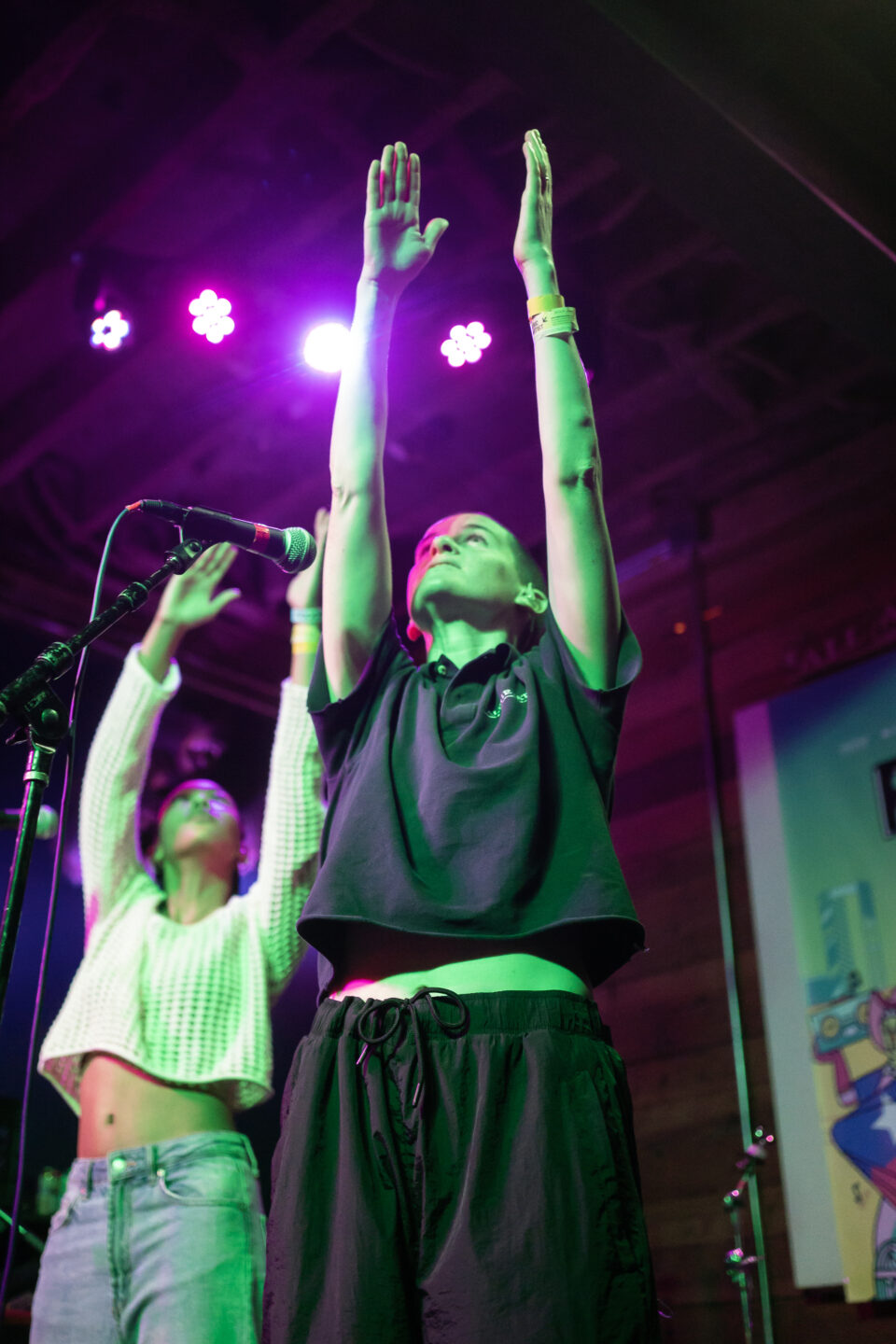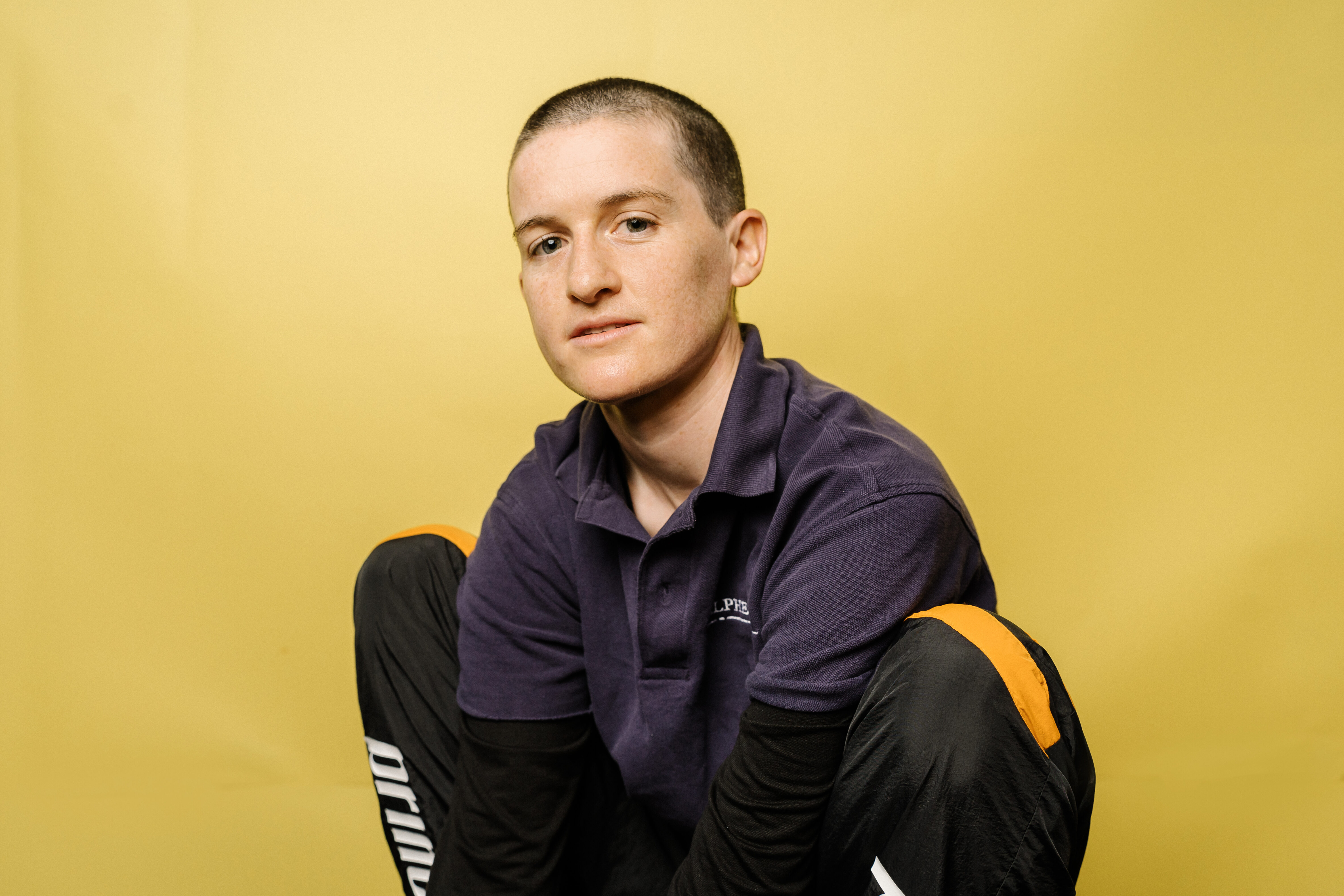On the surface, running and listening to music are activities that pair well together, both complementing and enhancing the other. But when it comes to making music, the connections grow deeper. Both take discipline and effort to do, and they’re both deeply nourishing for those who enjoy them.
Songwriter Barrie knows the intricacies of both. A runner since youth and a growing presence in the indie-pop scene, Barrie had some material left over from her 2022 album Barbara that was begging for release. After some thought, a theme tying them together became apparent in her love of running, and her new EP 5K came into focus. With a range of quicker BPMs and shimmering pop production, the five tracks on the record represent some of Barrie’s sharpest writing yet.
Ahead of the release of 5K this Friday, we sat down with Barrie to discuss how running and music have shaped her life, removing the competitive aspects from creativity, and how she’s continuing to grow as an artist.
As I understand it, 5K is mostly material that didn’t get included on Barbara last year. At what point did you decide to group them together here?
I was like “Oh shit, I still really like these and they’re really worth putting out—what’s the through line between these songs?” It wasn’t necessarily so deliberate a thing, it was more just listening back when you have enough distance from the making of the music where you can listen to songs objectively and be like, “These are good, how can I package these in a way that feels good, that makes them run as a pack?”
When making an album, is it typical for you to have a lot of material and whittle it down?
I usually start with a lot of fairly fleshed out songs and whittle down. And inevitably there are a lot left over that I still want to use for other things. But I have to get over the idea of, “These didn’t make the cut, these weren’t good.” That’s not how it works. It’s just that some songs won’t go together as an album. So it always takes some distance from that.
“I have to get over the idea of, ‘These didn’t make the cut, these weren’t good.’ That’s not how it works. It’s just that some songs won’t go together as an album.”
How far along were these songs?
All the instruments were recorded, and they were pretty much mixed. They basically just weren’t mastered. The song “Empty,” is the only exception, because I just rewrote all of the words. It didn’t feel right. I think it’s part of why it didn’t make the album, I wasn’t happy with the lyrics. Other than that they were mixed and ready to go and just needed to be mastered. So they were really close to making the album.
What’s your history with running?
I’ve been a runner since middle school. [I played] a lot of sports at a fairly serious level—but, like, team sports. And running was always a necessary evil. Then in college I started to appreciate it as its own thing. And I started getting into marathoning, but not in a competitive way. I found myself to be a very slow runner for distance, so I started to appreciate it as a non-competitive thing. I’ve taken it up on and off over the years, and it’s been a journey to appreciate it as something to not be competitive or self-conscious about, because it’s such a quantifiable thing.
“I’m like, ‘I want to make a Kim Petras song… I want to be able to do for people what this music does for me. I want to give people some dopamine.’”
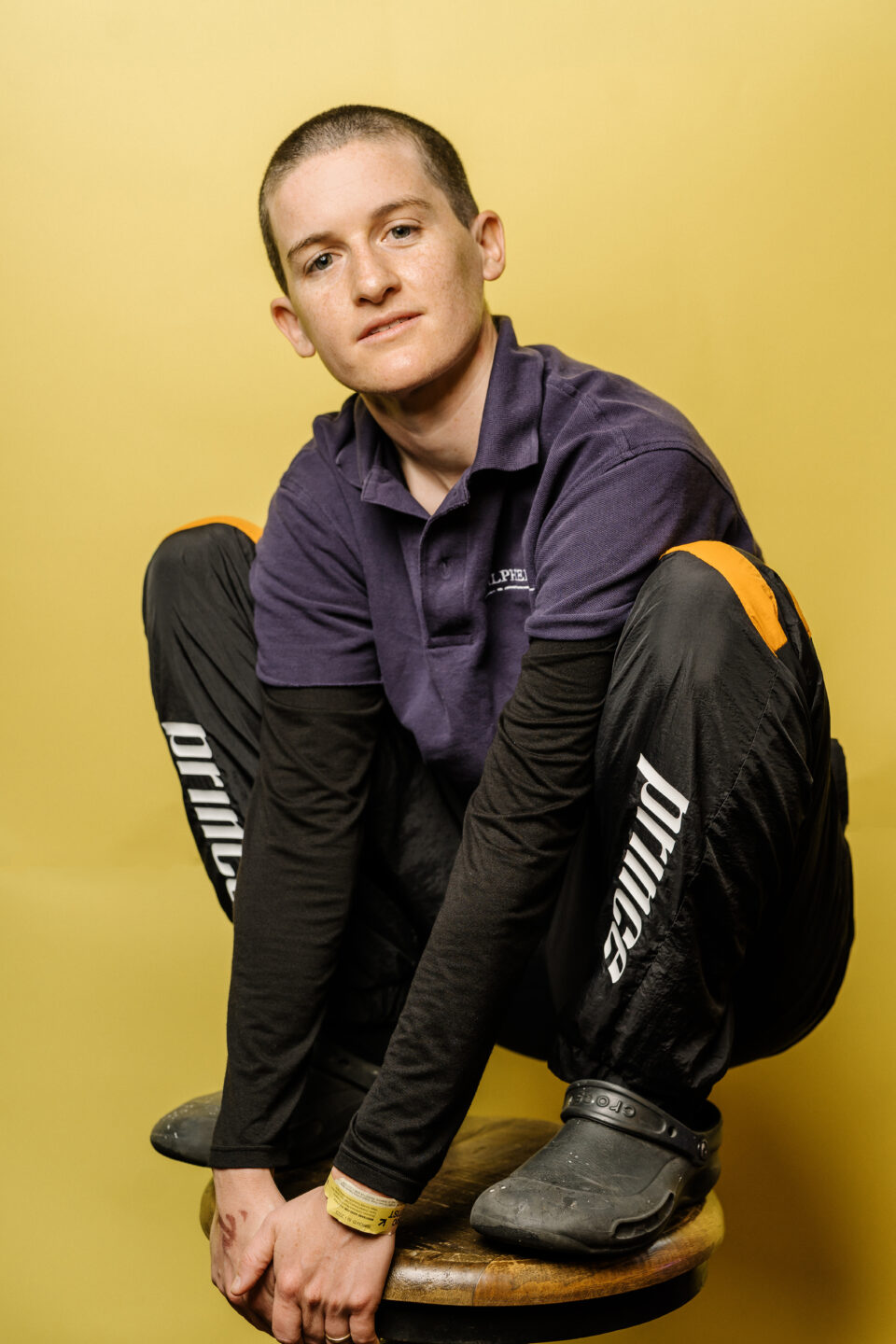
But it’s been a journey to remove the competition from it and just enjoy it as its own thing. And part of that has been what you get to do during it, like listening to music or podcasts. I’m really grateful for the music that I listen to while running. It was actually my wife Gabby who was saying when we were thinking about the concept for this album, “This is all really good running music.” So I got excited about that idea.
Is what you listen to while running similar to what’s on 5K?
Yeah, I tend to listen to a lot of really poppy music—much more poppy and louder than I normally would listen to in everyday life. Every time I do that I’m like, “I want to make a Kim Petras song” [laughs], or whatever has been working for me on that run. I definitely come out of it being like, “I want to be able to do for people what this music does for me. I want to give people some dopamine.”
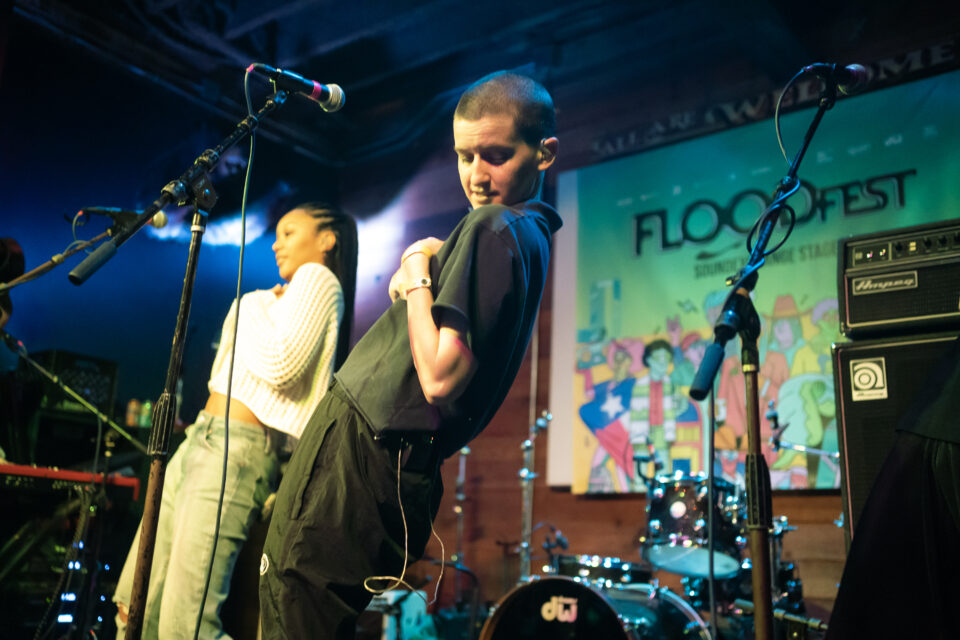
Barrie / photo by Kenn Box
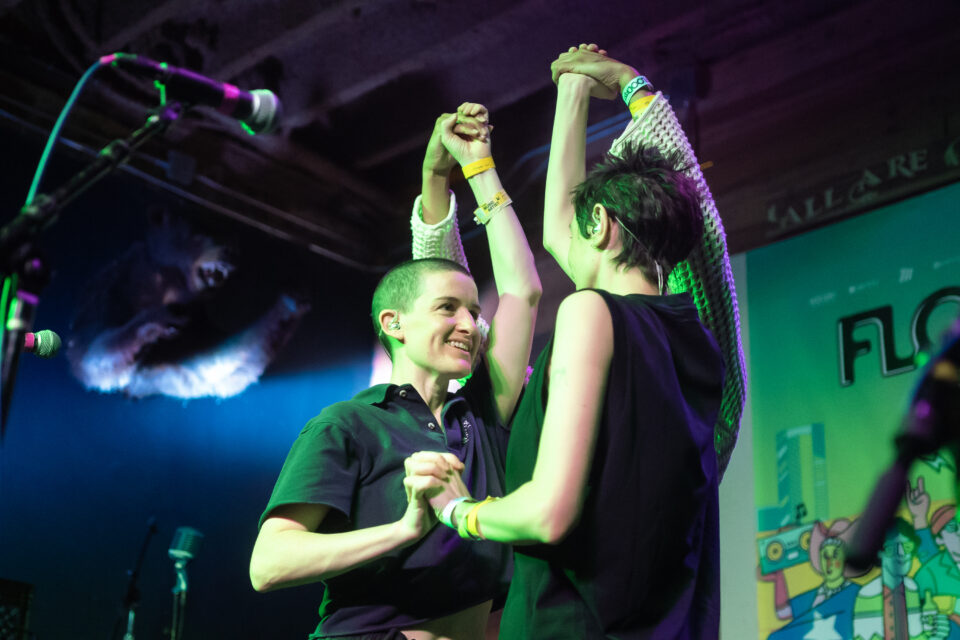
Barrie / photo by Kenn Box
Is there any intersection between your philosophies on running and music?
The thread that runs through both is, “Don’t worry about what other people are doing. Do what feels right for you.” Because it’s so easy to get pulled into the comparison game in both of those things. I found that I’m much happier when I don’t play that game and I just do my own thing and go for a run in the woods where I don’t see another human. Same for when I’m just making music in my own room. Not interacting with anyone is when I’m happiest with the results.
You do a lot of funky production on these new tracks. How many permutations do you go through before you land on the final product?
In hindsight, it feels like it’s pretty quick. The demos I make tend to be very fleshed out. But I think if I went into the actual files, I’d find that I did much more revision than I remember. It tends to be much smaller, more detailed kind of changes, overhauling the bridge or something like that. Every so often, maybe one out of 10 songs, we’ll have to have a drastic arrangement change or something, but they usually come out pretty fully formed.
“It’s so easy to get pulled into the comparison game in [both music and running]. I found that I’m much happier when I don’t play that game and I just do my own thing.”
Through this process of bringing the EP together and connecting the music to a personal interest, is there any aspect you’re excited to bring into your music in the future?
I didn’t mix these songs [myself], I worked with an engineer named Joseph Lorge who’s really talented and really awesome. I learned a lot from him, and I’m really excited about mixing my own music, because in listening back to [my] songs, I like a lot of the production sounds and mixes that I just came up with without trying to make super polished things. I’ve been spending a lot more time in YouTube university learning about mixing and practicing. So I’m excited in the future to fully produce and fully mix. I’m not gonna mess with mastering, but mixing is really fun. It’s really cool how much you can shift the sounds of songs with that.
And so that’s something I want to do a lot more of in the future, and have these projects be just fully in-house, totally sounding like how I imagined them sounding from the start. I think it would be really cool to be able to execute that, so I’m just getting the technical chops up to where they need to be in order for me to be able to do that. FL
